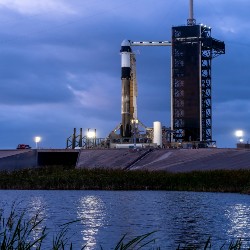Northumbria University receives further funding after testing Blood Flow Restriction (BFR) technology in orbit
Equipment developed by researchers at Northumbria University, in collaboration with key industry…
International
Northumbria’s global footprint touches every continent across the world, through our global partnerships across 17 institutions in 10 countries, to our 277,000 strong alumni community and 150 recruitment partners – we prepare our students for the challenges of tomorrow. Discover more about how to join Northumbria’s global family or our partnerships.
View our Global FootprintBusiness
The world is changing faster than ever before. The future is there to be won by organisations who find ways to turn today's possibilities into tomorrows competitive edge. In a connected world, collaboration can be the key to success.
More on our Business ServicesResearch
Northumbria is a research-rich, business-focused, professional university with a global reputation for academic quality. We conduct ground-breaking research that is responsive to the science & technology, health & well being, economic and social and arts & cultural needs for the communities
Discover more about our ResearchAlumni
Northumbria University is renowned for the calibre of its business-ready graduates. Our alumni network has over 250,000 graduates based in 178 countries worldwide in a range of sectors, our alumni are making a real impact on the world.
Our Alumni/404 cannot be found.
Please use the form below to report the broken link.

Equipment developed by researchers at Northumbria University, in collaboration with key industry…

Researchers from an outreach group at Northumbria University are celebrating after winning…

Professor Gita Gill of Northumbria Law School has been invited to provide expert advice to…

A team of international college students studying at Northumbria University could soon find…

Northumbria University student, Daniel Indi Te has secured a place in the final of the National…

A Northumbria University Professor has been recognised with one of the respiratory medicine…

A North East construction firm is targeting expansion after completing a marketing project…

Interior Architecture graduates from Northumbria University have presented their innovative…

Lecture Theatre 003
-

Lecture Theatre 401
-

Lecture Theatre 401
-

Northumbria University
-
Back to top